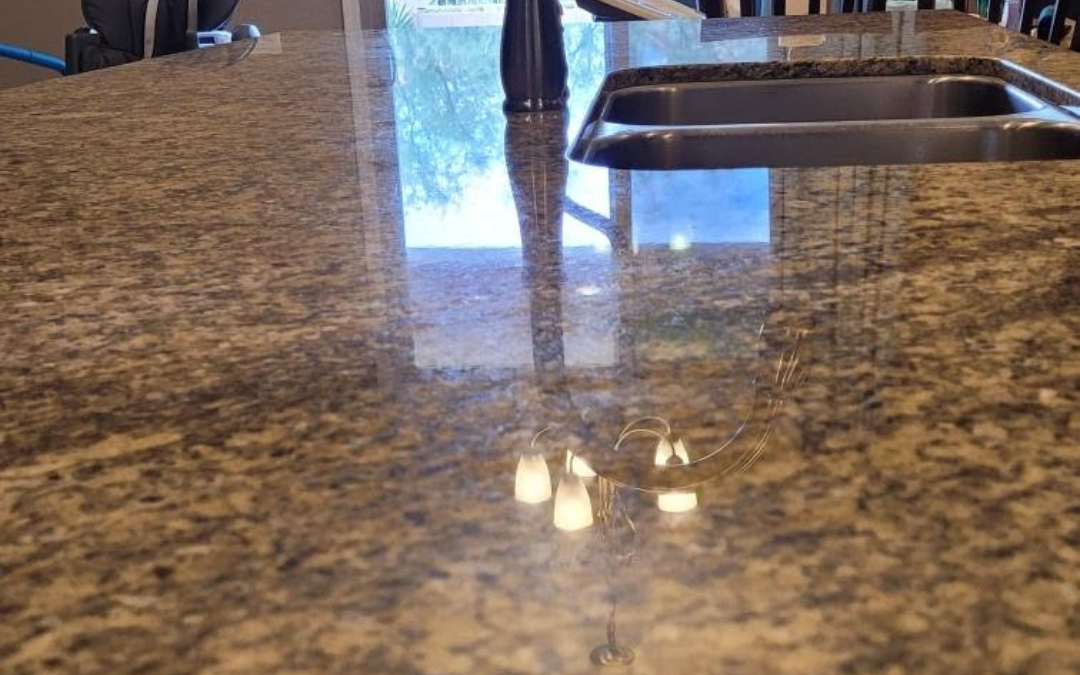All About Granite: Understanding and Caring for Stone at Home
Granite is a go-to stone for statues, monuments, and kitchen countertops alike because it resists the wear and tear of time better than nearly any other stone. Learn about how granite forms, where this beautiful and durable stone can be used in your home, and how to keep your granite surfaces looking beautiful for years to come.
Mount Rushmore. The Vietnam Veterans Memorial in Washington, D.C. The ancient statue of Egyptian Pharaoh Amenhotep III. The Princess Diana Memorial Fountain. When honoring a legacy for centuries to come, granite is chosen for its stately beauty and durability.
More than most stones found in home building and decorating, granite shows the beauty of the place it’s from. The different minerals and inclusions found in each piece make it completely unique—a piece of art in itself that makes your home a stately wonder.
What is granite?
Granite is a type of igneous rock that forms deep within the earth from silica-rich magma. It is composed primarily of quartz, feldspar, and mica; the beautiful mottled colors and texture of granite are formed by the combination of these minerals and crystals. The grain of the stone is determined by how quickly or slowly it formed; the slower the magma cooled, the coarser the grain.
Depending on the mineral and elemental composition of the place granite formed, it can be pink, black, brown, gray, or white in color. Granite that is higher in mica will have more sparkle. A higher presence of hornblende or biotite will create a darker-colored granite, while higher percentages of potassium feldspar can make granite pink. Some high-end granite may feature green or blue colors from epidote, sodalite, and lazurite formed by especially high heat and pressure or by hydrothermal activity.
Driving up Mount Lemmon highway, you may see the beautiful banding and swirls in rock features and road cuts. This is actually gneiss (pronounced “nice”): oracle granite that has undergone metamorphosis under the extreme pressure that formed the Catalina Mountain range.
Why is granite so popular in home construction and decorating?
- Granite is incredibly durable and scratch resistant, with a hardness high on the Mohs Hardness Scale of 7/10.
- With a low porosity, it is resistant to water-based erosion.
- Granite is acid-resistant, making it a great choice for etching-prone areas such as countertops.
- Granite has a high thermal stability; it can withstand temperature swings from hot pans placed directly on its surface.
- Granite is not very reactive to most chemicals, making it less likely than other stone types to be damaged by using the wrong cleaning agents.
- Certain types of granite can be low maintenance and stain resistant (ask our experts if you need a recommendation).
Because of its natural durability, granite is incredibly versatile. Countertops, flooring, backsplashes, and other high-use areas are natural choices for granite.
Caring for granite surfaces
Granite is unlikely to chip, crack, or scratch, but it can happen without proper maintenance or an accidental drop of a heavy pan. Whacking granite with a cast iron skillet or the edge of a stand mixer can cause chips. Thinner strips of granite, such as the front edge of a sink rim, can be susceptible to cracking under direct, hard pressure.
Granite that has not been properly supported by the foundation it’s set on, like the overhang of a counter or kitchen island, can break if you sit or stand on it. It may be incredibly durable, but it’s not indestructible.
Although granite is generally stain resistant, it’s still important to clean up spills quickly. Granite is not terribly acid reactive, but pH neutral cleaners can help keep your granite looking its best.
How often should you reseal granite?
Be sure to keep up with resealing every 5 years or so to keep your granite surfaces protected.
Because granite is so unique, replacing one segment of stone can be expensive and difficult to match—sometimes requiring full replacements to maintain the beauty of your space. As experts in restoration, AZ Stone Proz can maintain the integrity of your stone surfaces and save you the hassle and cost of a replacement.
Arizona Stone Proz specializes in natural stone cleaning and restoration.
Natural stone has a timeless beauty that makes it a highly sought-after design feature. If you have additional questions about granite or need help with resealing or repairing your granite surfaces, our team of stone restoration experts is just a phone call away. Call us today at (520) 779-2052, or schedule an appointment using our online form.

